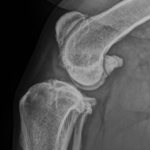
Gaye North Asks: I am interested in what cats get vaccinated for these days. I had my cat vaccinated for feline aids and was told about 2 years ago vets don’t tend to do this anymore. So my question is do cats have to be vaccinated for anything?
Answer: Thanks Gaye for the question. Vaccination advice and protocols seem to vary quite a bit, so the best thing to do is to discuss your own cats risk profile with your vet and ask them to tailor a vaccination protocol specific for your needs.
The basic cat vaccination is the F3 vaccine, which covers two types of flu plus enteritis. We consider these the “core” vaccines, which we believe every cat should have. This is because of the high levels of these diseases in the cat population, and the ease by which they spread. For cats that are indoor only cats, or go outside under direct supervision or in a cat run, this level of vaccination is adequate.
The “optional extras” include Chlamydophila, Cat AIDS (FIV) and Feline Leukaemia Virus (FeLV). We tend to recommend these vaccines for cats which have contact with other cats, or cats that are allowed outside without direct supervision. These diseases tend to be spread by direct contact, so cats which are entirely indoor are at low risk of infection, while those that go out and about are at much higher risk. The F3 vaccine is all that is required for the cat to go into most categories.
The F5 Vaccine, which includes the F3 components plus the Chlamydophila and FeLV vaccines, is our “next step up” from the F3. We tend to recommend these for cats which are allowed outside unsupervised but rarely get into fights. The main reason we don’t recommend these for every cat is the fact that the Chalmydophila vaccine can make a cat feel unwell for around 24 hours after the vaccine, and it is believe that the FeLV vaccine has a very small chance (1 in 10000) of causing a tumour at the injection site. For cats which are interacting with other cats, the benefits of the vaccine far outweigh the risks, but if the cat has no direct contact with other cats then it is not worth the very small risk attached to the vaccine.
Advice on Cat AIDS vaccines has changed in recent times. Previously, the vaccines were not thought to be effective enough, and the blood tests couldn’t differentiate between a cat which had been vaccinated and a cat which had a FIV infection. This meant that if a vaccinated cat was unwell and tested positive to FIV, we couldn’t tell if was infected or if it was the vaccine giving the positive result. The new generation of vaccines are much more effective than the old, and blood tests are now able to differentiate between a vaccinated cat and an infected cat. As a result of this, we now tend to recommend vaccination against FIV for cats which interact with other cats or are outside cats.
So, how often do cats need vaccinating? Although there are some who feel the core (F3) components should only be given every three years, the current evidence is that all three components don’t last that long. Our current advice is to vaccinate the cat every year, but only for the diseases which it is likely to be exposed to.



